New Allies: How INGOs and Social Entrepreneurs Collaborate to Transform Global Development
How can social entrepreneurs and INGOs collaborate to drive systems change? | What barriers do they face in the attempt working together? | What are critical success factors for these partnerships?
In this report, based on interviews, surveys and a range of events, Ashoka identified 14 actions that INGOs, social entrepreneurs, funders, and intermediaries can take to unlock the potential of these collaborations and systemic social innovation.
Ashoka partners with transformative INGOs, UN Agencies and Funders who strive to make global development inclusive, localized, and co-created. We are on a mission to place system changing social entrepreneurs – proximate leaders – at the centre of the world´s global development effort.
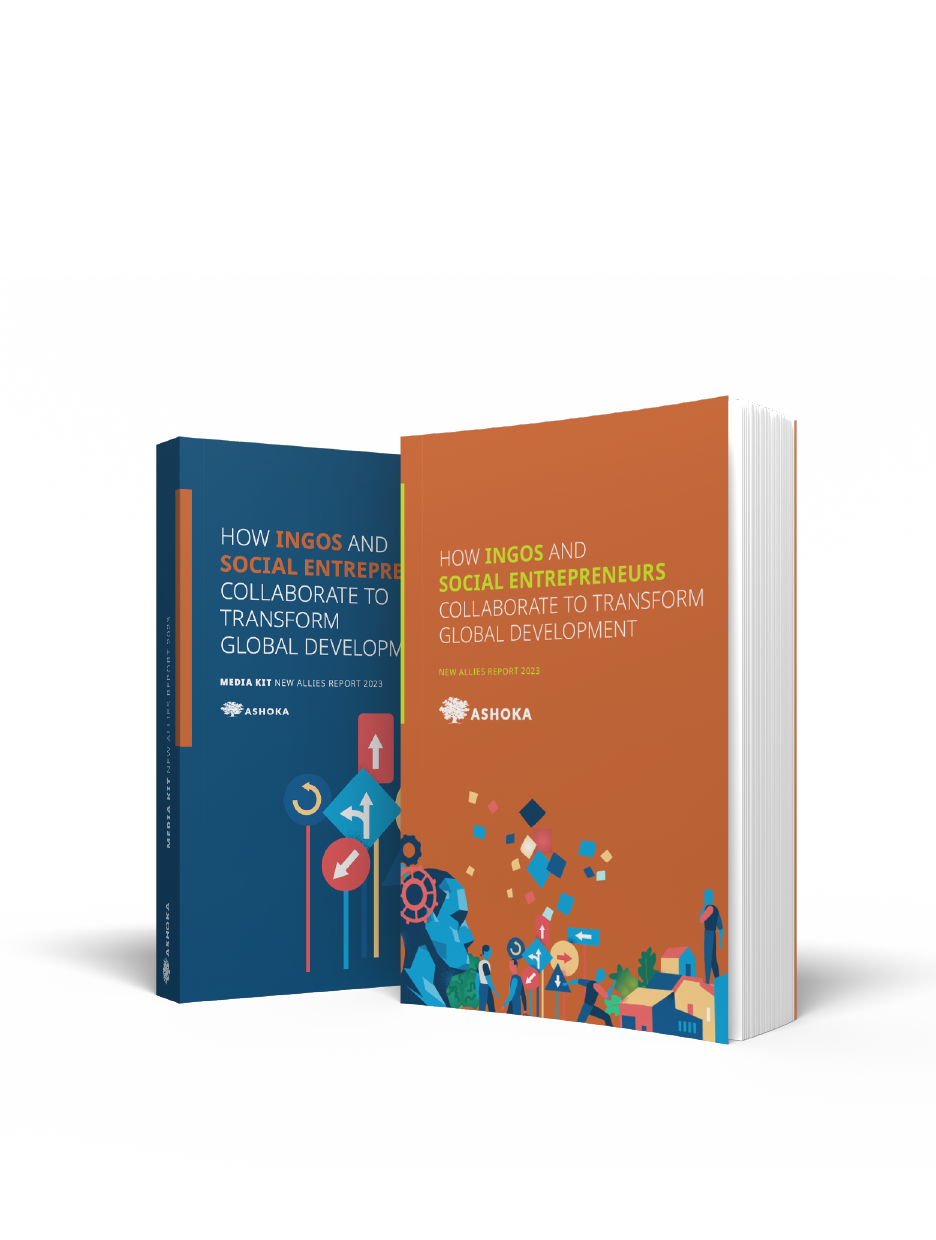
The Report
This report calls attention to the largely untapped potential of collaborations between social entrepreneurs and big International non-governmental organizations (INGOs) to scale impact and drive systemic change. INGOs and social entrepreneurs bring unique and complementary value to their collaborations. Partnerships between them can advance the international development sector toward more inclusive, localized, and co-created action. The report showcases successful collaborations, how partnership challenges can be overcome, and a range of recommendations for key actors in the ecosystem to catalyze more such partnerships.
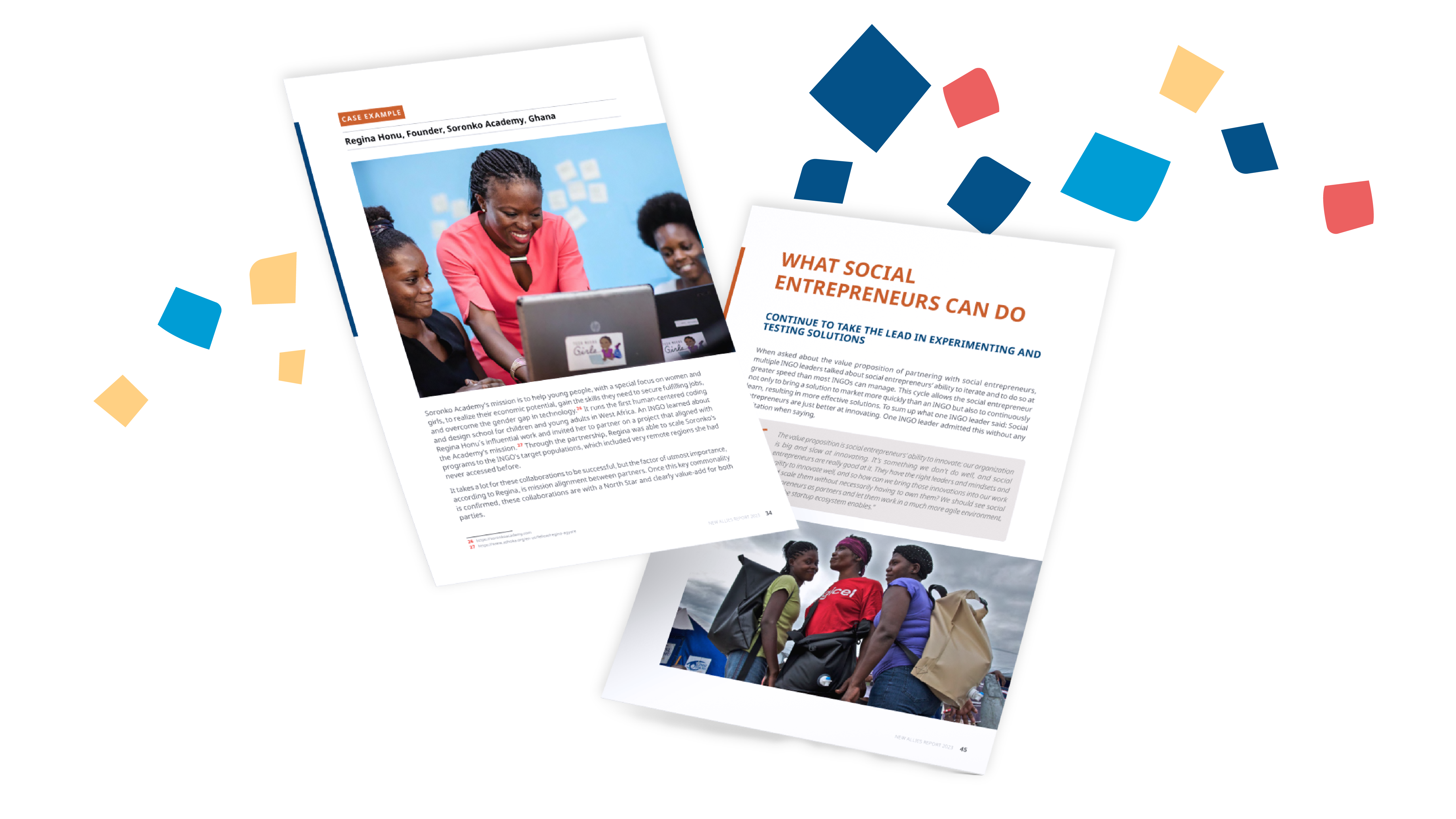
Report Partners
We would like to thank CARE and the Austrian Development Agency for its steadfast and always-inspiring partnership in this work; as well as Catalyst 2030 and its network members - thank you for serving as a sounding board on this topic and for holding us accountable for big change.
We would like to thank all contributors who made this report possible. Its insights are based on interviews with 35 social entrepreneurs and innovation leaders, mostly from INGOs. In addition, we surveyed 29 social entrepreneurs quantitatively, and held round tables, workshops, and informal discussions with many social innovators on the issue that informed the report. The report was peer-reviewed by more than 50 innovators from the field.
Catalyst 2030
Catalyst 2030 is a collection of social entrepreneurs, intrapreneurs, corporations, independent individuals, civil societies and governments, who have all come together in an effort to answer a simple question with a very complicated answer: How can we ensure the United Nations Sustainable Development Goals are met by 2030?
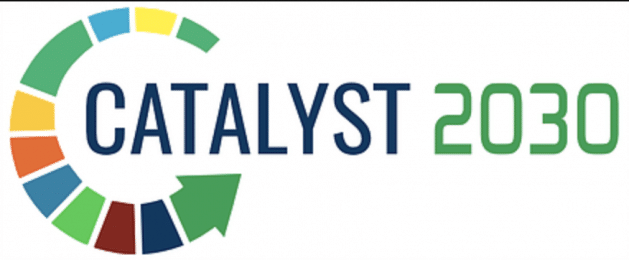

Catalyst 2030
Catalyst 2030 is a collection of social entrepreneurs, intrapreneurs, corporations, independent individuals, civil societies and governments, who have all come together in an effort to answer a simple question with a very complicated answer: How can we ensure the United Nations Sustainable Development Goals are met by 2030?

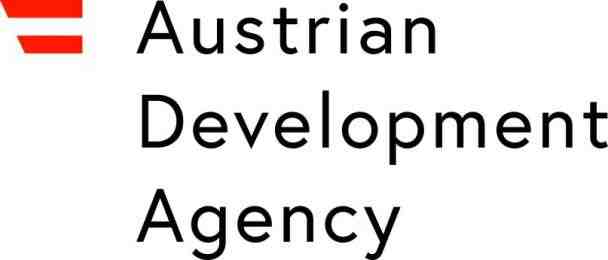
A supportive environment for partnerships between INGOs and social entrepreneurs can be built
This report is a call to action. We have identified 14 measures that INGOs, social entrepreneurs, funders, and intermediaries (i.e., organizations that support social entrepreneurs) can take to unlock the potential of these collaborations and systemic social innovation.
⭐ What INGOs can do
Treat social entrepreneurs as partners and engage them as experts, solution providers, co-creators, and research partners. Build purposeful relationships based on mutual trust, equality, and learning, that mobilize the complementary strengths of both to address a challenge or opportunity.
Make social innovation a strategic priority. While INGOs are trending in the right direction, to make progress, INGOs must be all-in. Leadership needs to make its commitment to innovation unequivocal, reinforced by the organization’s operations, strategic direction, and funding allocation.
Build an organizational culture of innovation by promoting openness, maintaining an outward focus, and cultivating leadership that encourages risk taking, creative problem solving, empathy and co-creation. INGOs can devote resources for their staff to develop these mindsets and capabilities.
Reflect on the “power footprint.” INGOs hold responsibility to work towards decolonizing aid and to improve their organizations’ diversity, equity, and inclusion (DEI) agenda. This includes transferring power to local organizations and creating the conditions for local partners to lead change.
🫱🏼🫲🏽 What Social Entrepreneurs can do
Continue to take the lead in experimenting and testing solutions. Social entrepreneurs iterate, learn, adapt, and bring solutions to market more quickly than INGOs can. The social entrepreneur’s commitment to experimentation, and experimentation’s ability to “de-risk” innovation are key assets for INGOs.
Build relationships and networks with INGOs. Develop a better understanding of how INGOs operate and the challenges they face. Through INGOs, social entrepreneurs get access to (inter)national structures of power, and in turn, can become accountability partners for their work locally.
Leverage expertise and knowledge of the local context. Social entrepreneurs have an unmatched expertise in the local contexts in which they work. They have experience building sustainable ventures with local stewardship. These are crucial assets they can offer in their partnerships.
🌱 What Funders can do
Provide more direct and flexible funding for innovation. Funders need to provide more financial support for social innovation, especially for INGO-social entrepreneur collaborations. Planning grants facilitate partnership building. Targeted grants foster organizational readiness for innovation.
Innovate operating funding models. Align funding practice to the needs of social entrepreneurs and innovative partnership models. Implement impact-linked financing, which involves the need to achieve impact-related benchmarks. Improve access to concessional funding for local innovators.
Incentivize partnership, innovation and systems change. Incentivize INGO-social entrepreneur collaboration through funding programs that require partnership with social entrepreneurs. Funders can offer funding pathways for collaborations to move from prototyping to institutionalization.
Foster experimentation and learning. Enable experimentation and agility in delivery and management of grants. Funders can provide sufficient resources to mine challenges and failures for lessons that will lead to future advancement. Support sound knowledge management.
✨ What Intermediaries can do
Facilitate collaboration. Source, select and connect social entrepreneurs interested in partnering with INGOs. Specialized social entrepreneurship support organizations bring the expertise to facilitate strategic collaborations and scaling partnerships. They can help to improve organizational readiness.
Share knowledge. Enhance learning across the social innovation field by identifying and showcasing best practices. Intermediaries can leverage their specialized knowledge to better prepare INGOs for partnership with social entrepreneurs and advance their social innovation efforts.
Consider INGOs as part of the ecosystem. Learn how INGOs operate, spot opportunities for INGO-social entrepreneur collaboration, and identify systemic barriers that INGOs and social entrepreneurs can jointly tackle.
What we do: We accelerate innovation, changemaking and co-creation cultures in global development.
We build communities of global development leaders powered by Ashoka’s unrivalled network of social entrepreneurs to accelerate their organizations transformation and impact.
We are architects of a cultural shift within global development organizations in which everyone develops the skills, confidence, and agency to drive social innovation and changemaking.
We facilitate transformational partnerships between powerful development actors and social entrepreneurs to co-create scalable and innovative solutions.
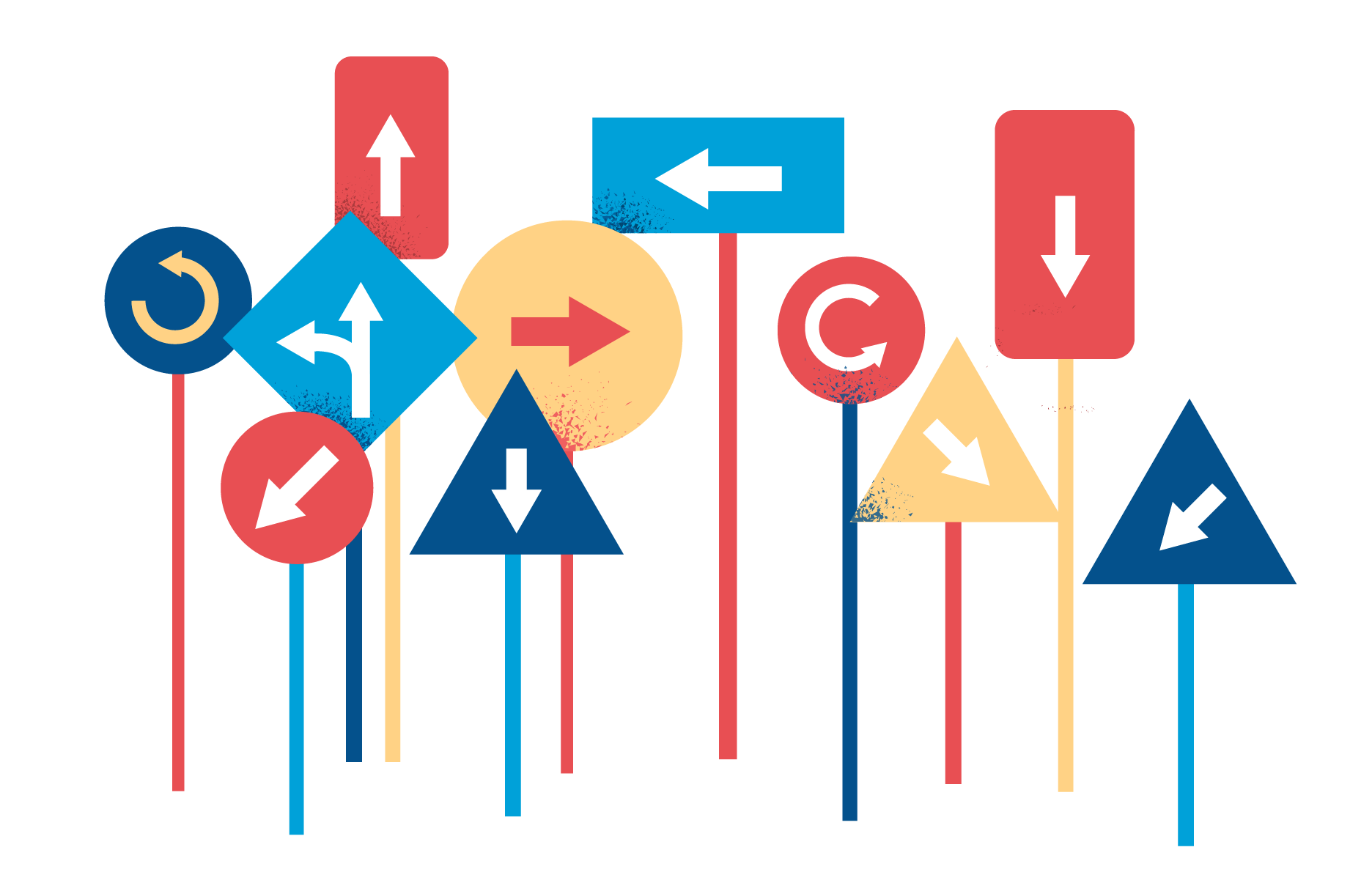
What we offer: Leverage innovation, entrepreneurship and changemaking to accelerate organizational transformation and social impact.
1. Become a Changemaker Organization: We support you to anchor innovation in strategy, talent management and organizational cultures.
Make social innovation a strategic priority: Develop an integrated and organization-wide social innovation strategy, build up organizational innovation infrastructure and create flagship innovation programs.
Cultivate Intrapreneurial Talent: Empower staff to share and build innovative ideas, run incubators and innovation funds for the organizations’ intrapreneurs and provide experimental learning journeys to unleash changemaking leadership.
Build an Organizational Culture of Changemaking: Convene inspirational and collaborative spaces within the organization, host peer-to-peer learning circles and build systemic intersections with social entrepreneurs across programs.
2- Partner with Social Entrepreneurs to catalyze lasting change: We collaborate with you to source, select, connect, and collaborate with social entrepreneurs.
As Experts: Social Entrepreneurs come with deep knowledge about local communities, specific sectors or novel technologies; or on how to build social ventures. As experts, social entrepreneurs make valuable partners to consult when specialized knowledge is needed.
As Solution Providers: Through challenges, open innovation calls, crowdsourcing, and solution mappings, we engage social entrepreneurs in problem-solving. Social entrepreneurs can adapt, replicate, and scale their solutions in partnership with global development organizations.
As Co-Creators: Global development organizations can invite social entrepreneurs to co-create during the design phase and support them to join complex funding consortiums as equal partners to drive collective impact and access international aid.
3. Build ecosystems for innovation and changemaking: We co-create with you to make global development inclusive, localized, and co-created.
Accelerate Social Innovation on a Mission: Take advantage of the collective intelligence and collaborative power of the world´s leading social entrepreneurs innovating on gender, education, youth, planet & climate, democracy, or health. Co-create collective impact for sector-wide change.
Create new Infrastructure for Social Entrepreneurs: Establish social entrepreneurship and innovation as a new field of development impact. Invite governments, corporations, as well as financial and educational institutions to build the ecosystem needed for social entrepreneurs to thrive.
Increase Changemaking Power in the Global Development Agenda: Create policies, practice, knowledge, and spaces in Global Development that ensure more people proximate to the problem are building local and global solutions. Enable all institutions to become “changemaker makers”.
Support us disseminate our insights
We welcome your support to disseminate our newest report, New Allies: How INGOs and Social Entrepreneurs Collaborate to transform Global Development, so the valuable insights from our findings can be shared widely through the social impact sector. This media kit contains a variety of content and collateral that can be shared across platforms.
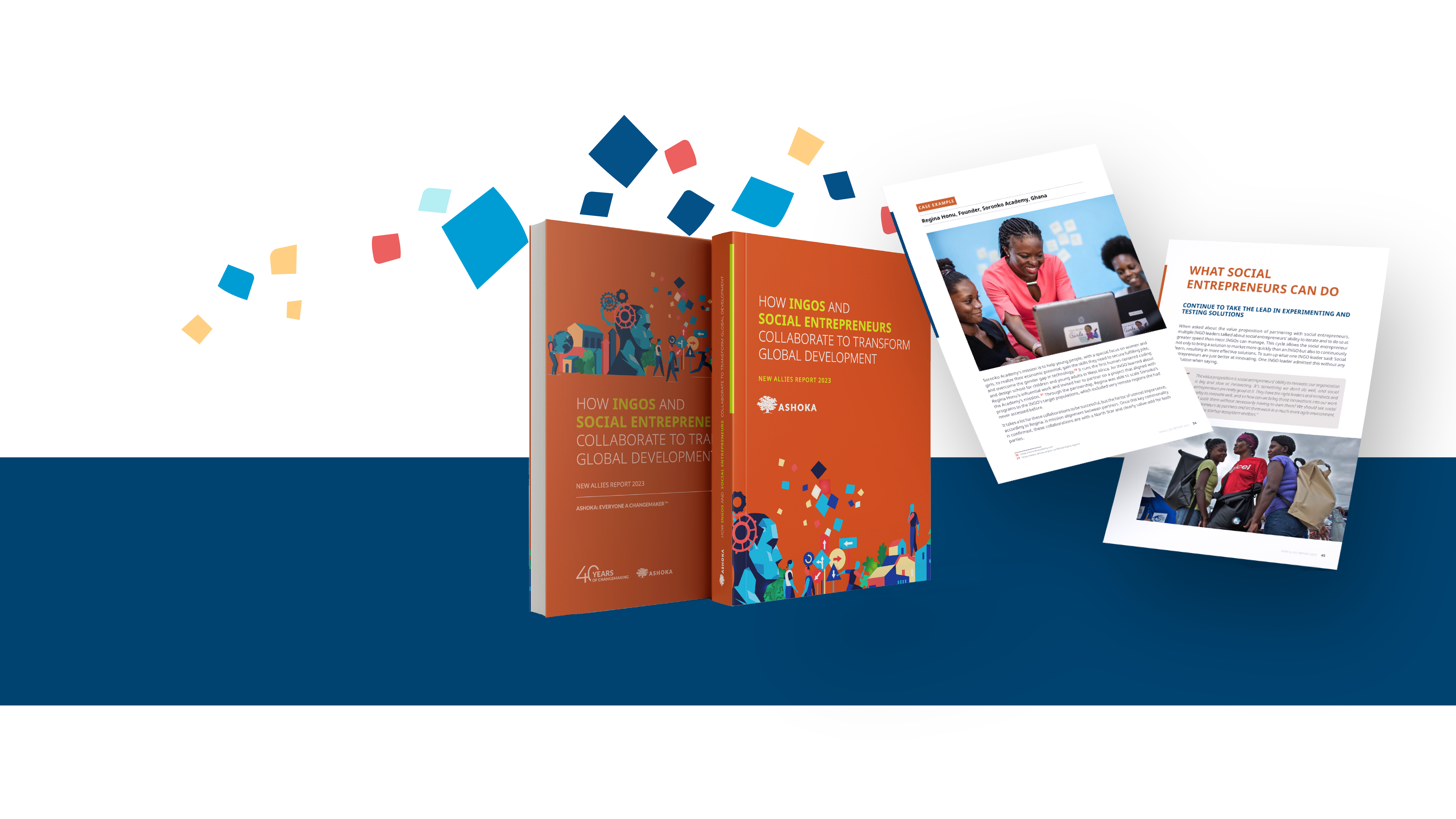
Meet the team
Ifeyinwa Egwaoje
Fellowship Director, Ashoka Africa
Georg Schoen
Leadership Team, Ashoka Europe
Stéphanie Schmidt
Partnership Director, Ashoka Africa
Vincent Otieno Odhiambo
Regional Director, Ashoka East Africa
Perrine de le Court
Director Belgium
Daniela de Carvalho Matielo
Executive Director Ashoka Changemakers, Ashoka Peer to Peer and One Community Team
Olivier Fruchaud
Changemakers Company Team
Loic Van Cutsem
Partnerships and Scaling Manager
Let´s talk. Reach out for inquiries here.















